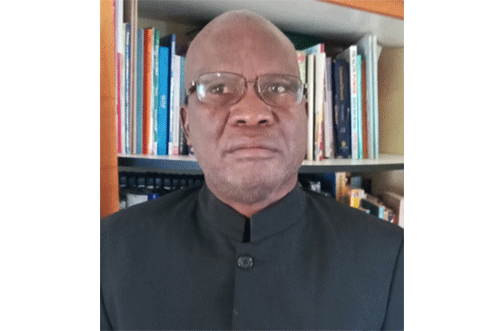For many years, debates and renunciations among Western and African philosophers trained in Western schools of philosophy rejected the notion of an African being able to be critical and innovative under any circumstances.
Contrary to this argument is the affirmation that a black person like his or her white counterpart is capable of being creative and acquire knowledge.
Many philosophers argue that different societies have different claims of knowledge maintaining that Chinese or Europeans would assert their claims about knowledge differently from Africans.
This means that although knowledge is universal, the ways of acquiring it vary according to socio-cultural contexts.
Other philosophers take a strong universalistic line and deny that there are no distinctive cognitive principles belonging only to a particular society. They argue that knowledge cannot differ from one society to the other.
According to them if we refer to something as knowledge, it should be true for all people anywhere in the world (Kaphagawani and Malherbe, 2002). Contrary to these two schools of thought, it would be fair to regard knowledge as both varying according to the socio-cultural background and universal in nature. There is, thus knowledge of Western culture on the part of the contemporary Africans and knowledge of African orientation on the other hand. According to this conclusion, there is no doubt that the average African today is more or less modernised and possesses knowledge in the sense that he or she is familiar with most trappings of modern Western technological advancements.. It is, therefore, possible for someone to have knowledge of a culture, to live according to its norms and practices and yet at the same time reject that culture. The conclusion to be drawn is that a person may have a thorough knowledge of a culture, even live within it and yet assess it as undesirable and unacceptable to a certain extent.
Some colonisers affirmed that although the people were black and naked, they were civil, (Mungazi 1996)” because African communities already had their own way of educating and imparting knowledge to their young ones emanating from the African worldview which they disrupted during the process of colonisation. They deliberately trampled upon the sages, the custodian of knowledge, in the African communities and discarded their wisdom.
With sagacity, the premise is that some members of a community reach a high level of knowledge and understanding of their cultures’ worldview and become sages.
Africa has sages who are wise because they keep on searching for wisdom, in trying to come up to terms with life. The African sages may not have written books, but they searched hoping to arrive at tentative answers in life, which is archetypal of human response.
The sages have been using a simple method of disseminating information and expertise to their young ones through oral tradition from times immemorial to date.
Nevertheless, contrary to the down treading of the African sages, Mungazi (1996) observed that King Lobengula in today’s Zimbabwe was a shrewd politician, highly intelligent, and argued with remarkable success with the Cambridge men and remembered everything which had been previously discussed.
Lewanika of the Lozis equally told Frederick Stanley Arnot, a missionary that his people knew a lot about God. It is in this vein that Oruka (1990) refutes the reasoning of many European and African philosophers that Africans” search for knowledge came after many African colonies shook off the yoke of colonialism.
According to him, those Africans who pronounced themselves on the concept of African philosophy did so to revive a concept that was buried by the West and laid fallow for some years.
In the African culture, the concept of the ‘educated man’ makes no distinction between the ‘educated man’ and the ‘ideal citizen’ as we have in the Western European culture.
The reason being that there is no system of education separate and distinct from the system of socialisation and of living in indigenous African society as an educated man or woman is one who is ideal in the culture.
Hence, in the African context, to talk of an educated man or woman is to describe a man or woman who combines expertise with the soundness of character and wisdom and judgment.
He or she is the one who is equipped to handle successfully the problems of living in his or her immediate and extended family.
This should be one who is well versed in the folklores and genealogies of his or her ancestors and one who expresses himself or herself in proverbs leaving his or her learners to unravel his or her thoughts
It was thus surprising and indeed unfortunate that after independence, many African leaders disregarded the sagacity of their communities. In most cases, they failed to consult them and behaved as if they were of European stock. Most African systems of doing things were ignored let alone the treatment of elderly people. Traditional leaders and houses of chiefs became mere white elephants.
As Mazrui (1986) laments, although those traditional leaders are chiefs in their communities, the power lies elsewhere among the politicians. By skipping and ignoring the wisdom of the sages, African political leaders have failed their people and plunged into continuous conflicts


